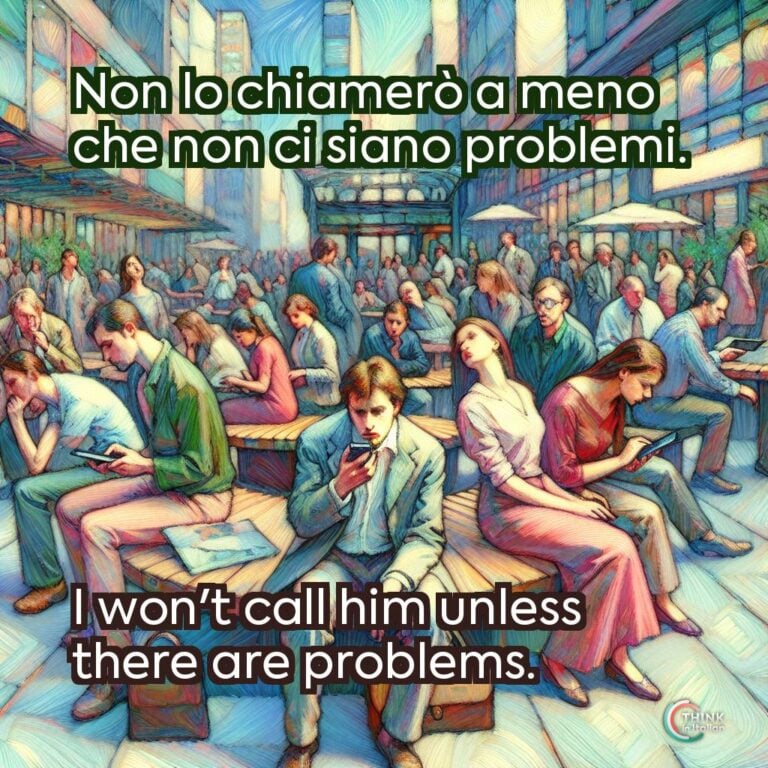How to say “Unless” in Italian
“Unless” in Italian can be translated as a meno che. It is used to introduce a condition that must be met for something to not happen, expressing an exception.
This phrase is typically followed by non and a subjunctive verb in Italian, setting a condition that, if not fulfilled, leads to a different outcome.
Non andrò alla festa, a meno che tu non venga con me.
I won’t go to the party unless you come with me.
How to use “a Meno che”
“A meno che” or “a Meno che non”?
In Italian, the correct expression is a meno che non followed by a verb in the subjunctive mood. As I always tell my students: I know it sounds redundant in English, but like it or not, the non is a necessary part of the expression.
In this expression, non does not mean “not”, but it is part of the construction. In linguistics, it is called non-pleonastico. It means it is only stylistic, that its use does not change sentence’s meaning. Yet, it is fundamental, as using a meno che without non is incorrect in standard Italian.
Have a look at the sentence below:
Non lo farò, a meno che non mi preghi.
I won’t do it unless you beg me.
“A Meno che non” + Subjunctive
As you probably know already, the subjunctive expresses hypothetical situations. When used in the construction a meno che non, it is used to express a hypothetical condition.
Depending on what you need to convey, you can use any of the four subjunctive tenses. Let me show you some examples:
- Present subjunctive (congiuntivo presente): used to talk about present or future events.
Andremo al mare domani, a meno che non piova.
We’ll go to the beach tomorrow unless it rains.
- Past subjunctive (congiuntivo passato): used to talk about past events that happened at a specific time.
Non puoi uscire a meno che tu non abbia fatto i compiti.
You can’t go out unless you have finished your homework.
- Imperfect subjunctive (congiuntivo imperfetto): used to talk about events in the past that happened over a prolonged time.
Lui veniva sempre da me a meno che non lavorasse.
He would always come to mine unless he was working.
- Past perfect subjunctive (congiuntivo trapassato): used to refer to an event that happened before the hypothetical event in the main clause, which also happened in the past:
Non sarei mai venuto alla festa, a meno che tu non mi avessi invitato.
I wouldn’t have come to the party unless you had invited me.
“A meno che non”: Examples
Let’s now have a look at some more examples with a meno che non:
A meno che non sia gratuito, non ci andrò.
I won’t go unless it’s free.
Dovrò rinunciare all’acquisto, a meno che non mi faccia un prezzo speciale.
I will have to give up the purchase unless you give me a special price.
Verrò da te a meno che non debba lavorare.
I’ll come to yours unless you have to work.
Non parlo con te a meno che tu non mi chieda scusa.
I’m not going to talk to you unless you apologize.
Puoi usare la sua macchina a meno che non l’abbia venduta.
You can use his car unless he sold it.
Le chiavi dovrebbero essere lì a meno che qualcuno non le abbia portate via.
The keys should be there unless someone took them away.




